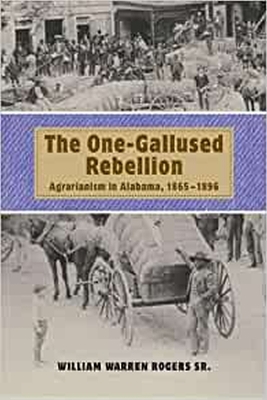Alabama's agrarian protest began in the decades after the Civil War when individual farmers found themselves in an economic regression, unable to understand or partake in the forces behind the New South prosperity enjoyed by a few professional men, merchants, industrialists, and large planters. In reaction to this situation, yeomen farmers began to venture into the economic and business realm through the formation of such organizations as the Farmers' Alliance, the Agricultural Wheel, and the Grange. Initially apolitical, these groups were the germ of the turbulent agrarian upheaval that culminated in the elections of 1896. Disenchanted by the reign of Bourbon Democrats and their refusal to acknowledge the individual farmer's situation, agrarian reformers united under the umbrella of the Populist Party. The Populists' defeat in 1896 marked the end of the agrarian reform movement, but the legacy of the revolt continued to affect the state politically and socially. Utilizing important primary material from newspapers and archives as well as unpublished monographs, Rogers provides insight into this complex and influential chapter in Alabama history. In an exceptionally well-written narrative, he explains how poor white farmers, often identified by a single gallus of their worn overalls strung diagonally across a shoulder and fastened to the bib, formed an unusual alliance with blacks, industrial workers, coal miners, and a number of editors and other citizens who believed in political and economic justice. This book was originally published in 1970 by LSU Press; this first paperback edition includes a new introduction by the author. The One-Gallused Rebellion is recognized as the definitive examination of late-19th-century agrarian struggles in Alabama and will remain so for many years to come.
- ISBN13 9780817311063
- Publish Date 18 June 2001 (first published 1 January 1970)
- Publish Status Active
- Publish Country US
- Imprint The University of Alabama Press
- Format Paperback
- Pages 376
- Language English
